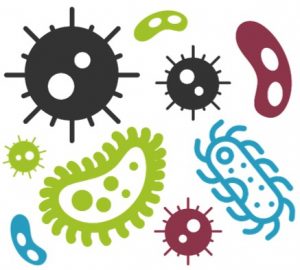A new paper looks at innovative tools in chemical biology, and the power of combining these with multi-omics approaches to provide detailed insights into the behaviour of complex microbiomes.
Highlighted techniques include bio-orthogonal non-canonical amino acid tagging (BONCAT), stable isotope probing (SIP), and Raman-activated cell sorting (RACS). These non-destructive tools enable high-resolution profiling of microbial activity, elucidating metabolic functions in live cells, including uncultured or low-abundance taxa. The approach has applications in a wide range of microbial ecosystems and in disciplines from biotechnology to environmental and human health.
EBNet warmly welcomes this type of work, which helps to advance our understanding of the diverse and highly interactive microbial communities at the heart of environmental biotechnology.
 Lead author Dr Yumechris Amekan said, “I first presented my work on BONCAT at an EBNet ECR meeting back in 2020. This review builds on those ideas by placing BONCAT alongside a wider set of innovative chemical biology tools. It’s exciting to see how these approaches are transforming microbiome research, and I’m delighted to share this progress with the EBNet community”.
Lead author Dr Yumechris Amekan said, “I first presented my work on BONCAT at an EBNet ECR meeting back in 2020. This review builds on those ideas by placing BONCAT alongside a wider set of innovative chemical biology tools. It’s exciting to see how these approaches are transforming microbiome research, and I’m delighted to share this progress with the EBNet community”.
All three authors are EBNet members, and Prof James Chong co-Leads EBNet’s Bioinformatics WG. For more examples of outputs from this very active research group, see here.
Innovative chemical biology tools for monitoring activity in complex microbiomes. Amekan, Y., Redeker, K.R. and Chong, J.P., 2025. Current Research in Biotechnology, p.100334.


